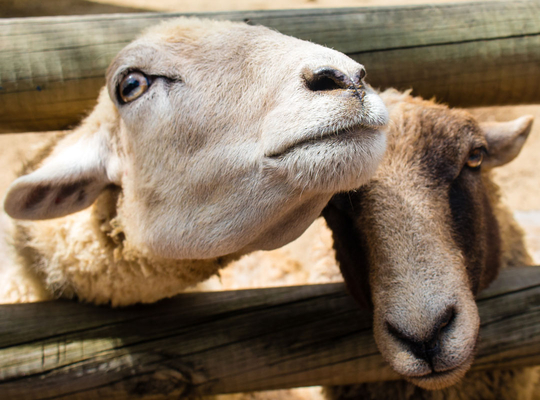You are here
Historic total ban on unsedated slaughter

A total ban on slaughter without anaesthetic is on its way in Flanders. The N-VA, together with the other Flemish majority parties, is taking this historic step following a round of independent mediation commissioned by Flemish Minister for Animal Welfare, Ben Weyts. “I am proud of our community: Flanders is taking the lead internationally when it comes to increased animal welfare,” says Ben Weyts.
Specifically, as from 2019 it will be prohibited to slaughter animals that have not been sedated, a practice that is still currently wide-spread. In this regard in Flanders there will be an obligation to slaughter sheep, small ruminants and poultry according to the method of reversible electronarcosis: a painless technique in which the sedated animal becomes insensitive to pain. As soon as this technique has been perfected for calves and cows, it will be applied to these animals too. Until then the obligatory method is post-cut stunning, in which the sedation takes place immediately after the neck is cut.
The courage of a conviction
Since his appointment as the first Flemish Minister for Animal Welfare, Ben Weyts has been sticking his neck out in the dossier concerning unsedated slaughter. Soon after his swearing-in ceremony, he was quick to bring an end to unsedated slaughter at temporary slaughter locations. When he did so, Ben Weyts was subjected to a torrent of reproaches, legal procedures and even threats. And yet he continued to advocate a total ban on unsedated slaughter. “In a civilised society it is our damn duty to reduce animal suffering wherever possible. It is crucial that animals can meet their ends in a dignified manner. Unsedated slaughter is simply not acceptable today,” Ben Weyts concludes.
Investing in dialogue pays off
It is for that reason, that last year the Minister gave the assignment to an independent mediator, Piet Vanthemsche, to prepare the various faith communities for the end of unsedated slaughter. On the basis of a report that the mediator has in the meantime submitted, the Flemish majority parties have now decided to work together to achieve a total ban on unsedated slaughter within two years. “That more than gives a chance to everyone involved to adjust to the new reality,” Minister Weyts concludes.

